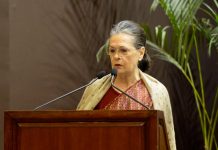Abu Bakar stopped going to the mosque after he was harassed by the local cleric. “Once when I went for a friday prayer at the mosque, he ridiculed me. Pointing towards me he said that a beard or a skullcap does not make a real Musalman. He even ridiculed my wife about wearing a religious dress.”
The Mahallu Committee then urged the villagers not to keep any contact with the family. They even stopped taking membership fee from the couple and stopped giving the share of meat that is given to Muslim families during the month of Ramadan.
Abu, one of the few neighbours who keeps in touch with the couple, says of the local people, “Most of them are Muslims and they fear that they also will be socially boycotted if they talk to them or help them.”
However, the social ostracism has not deterred the couple: They are not ready to give up their beliefs. “We may be poor, but we have the right to live an honest life,” says Abu Bakar. “Gods of all sects teach us to treat all as equal and with reverence. We have not committed any crime or hurt anyone’s sentiments. What we practice is what we believe.”
Meanwhile, the Mahallu Committee denies all allegations. They tell Tehelka that no family faces a boycott. “Abu Bakar stopped coming to the mosque, we had no role in this,” says Sirajudeen, president of the Mahallu Committee. “We got many complaints regarding the family’s engagement in anti-Muslim practices. We advised Bakar that it is not a right practice. When he ignored us, we stopped talking about it. We have not ostracised or isolated any family.”
The couple has also sought the help of Ernakulam district’s collector and the Waqf Board against the ostracisation.
“No ban or boycott can be enforced on the grounds of an individual’s belief,” says BM Jamal, ceo, Kerala State Waqf Board. The board has already issued directives to the mosque committee to present itself for detailed explanations of its actions on 12 October.
Jamal admits that the state is witnessing an increase in the number of social boycott cases in the last few years. “Lack of evidence is obstructing action against such people or mosques,” he says.
Aasiya and Abu Bakar, meanwhile, have not received any justice even after a month of registering their complaint. Instead, they have been inundated with complaints from the local people accusing them of destroying the peace of the village. Based on this, the couple has been directed to present themselves before the authorities every day. This has further made life burdensome for the old couple. “They have been using such torture tactics hoping that we will sell the property and leave,” says Abu Bakar.
On questioning, the district administration told Tehelka that it is acting on the complaint filed by the couple.
Despite the scale of torture and tantrums, the two are resilient about pursuing their beliefs. “After us, we are not sure whether our children will continue this practice,’’ they say. “But we want to pay our respects to the gods till the day we die.”
adarsh.onnatt@tehelka.com












